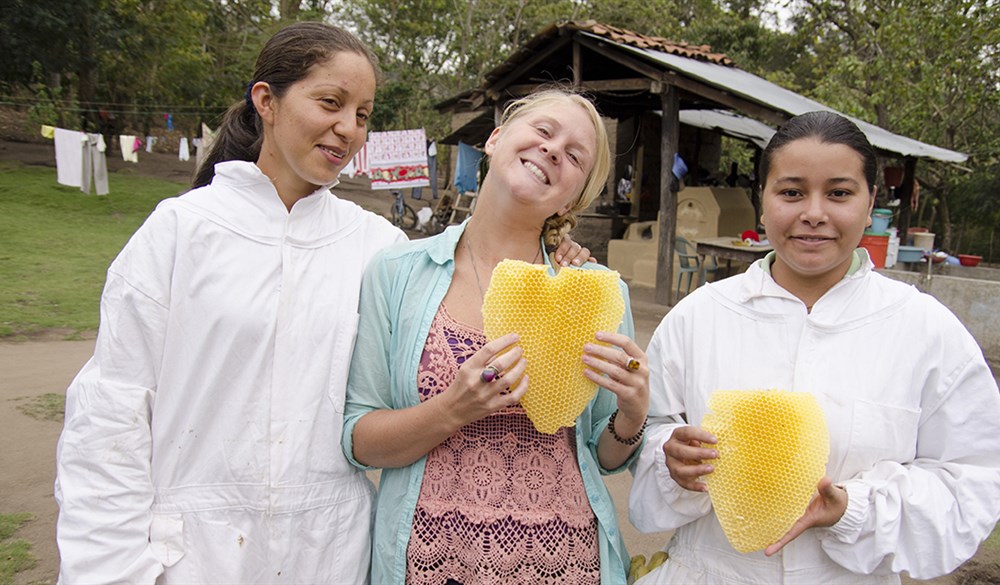How Bees are Changing Lives in Nicaragua
Story

Sometimes all it takes to reach the road to success is a start-up loan, training and a beekeeper’s suit to get you going.
Beekeeping is a tremendous job, and a difficult one to learn. Some of the things you need to know include how to clean hives, approach the bees, put on the special protective suits, extract the honey from the hives and then jar it. This is exactly what the Association of Women Producers, a cooperative in Nicaragua, is teaching groups of women so that they can not only learn the art of beekeeping, but make a sustainable living through honey.
Once they learn how to harvest the honey, the women then learn the business side of beekeeping. With the support of Cuso International volunteers, these women are moving beyond selling their honey in local communities to branching out into larger markets, including farmers markets, natural food stores and other local shops.
Chrissy Fair is one Cuso International Toronto-based volunteer who spent six months in Nicaragua working alongside the beekeepers. She suited up many times in the special beekeeper’s suit – a white, one-piece suit with gloves, boots and a head piece with a mesh screen. Luckily, Fair says, she never got stung because before visiting the bees, they would smoke the hives to make the bees docile.
In between honey tastings (she says this pure, organic honey is particularly sweet and rich, but she also loved eating the honey comb), Fair ran workshops to teach these budding beekeepers how to set goals and objectives, create marketing plans and monitor their harvest.
While Nicaraguans typically only use honey on bread, Fair was helping the women to see how they can use it in other ways as a sugar substitute and also to consider the next stage of their businesses, including producing wax, pollen, soaps and butters.
Please consider donating today to help send more volunteers like Chrissy where they are needed most to make a real difference.